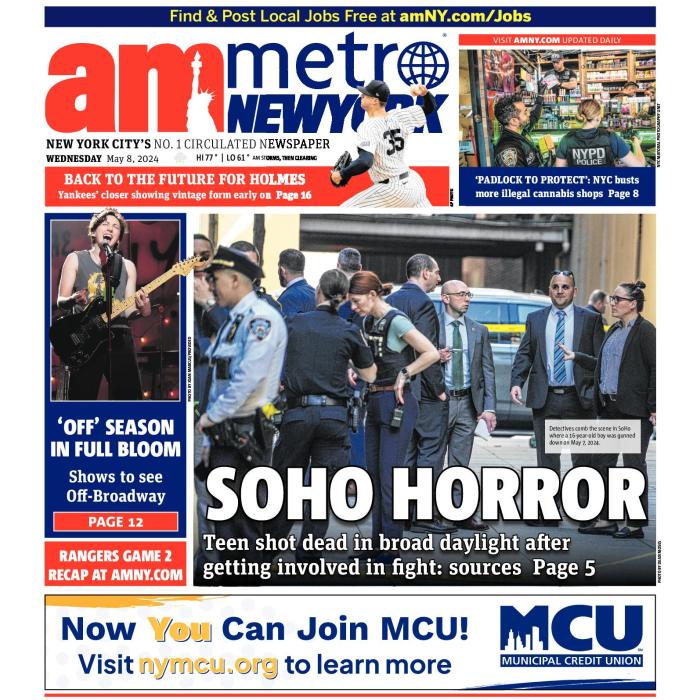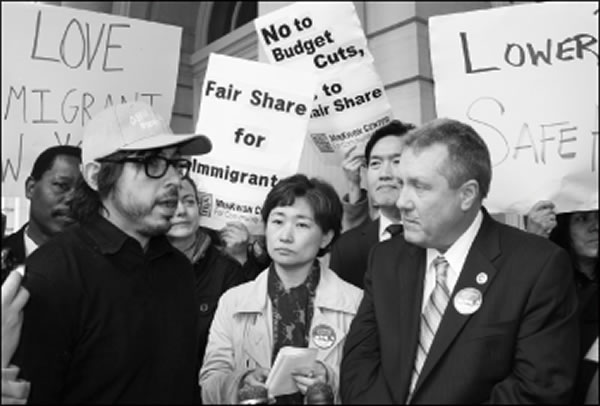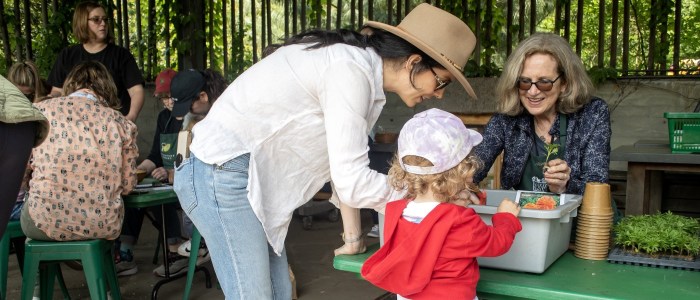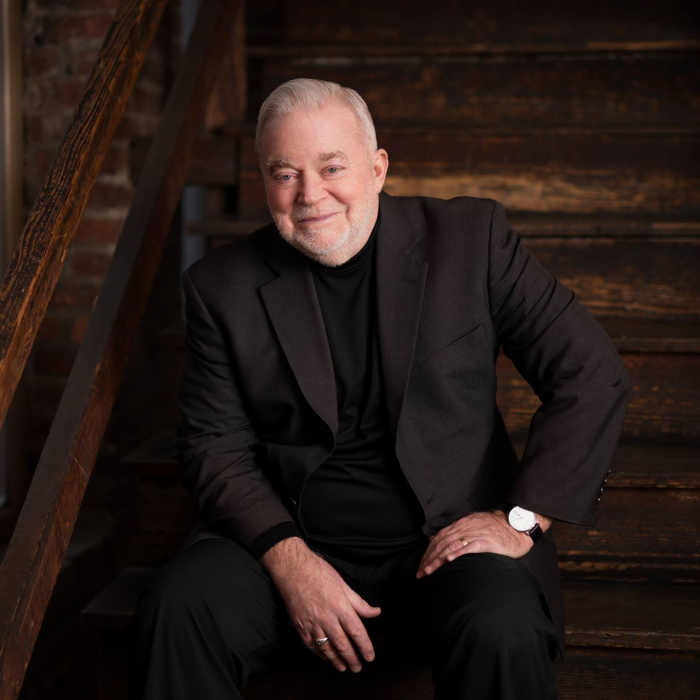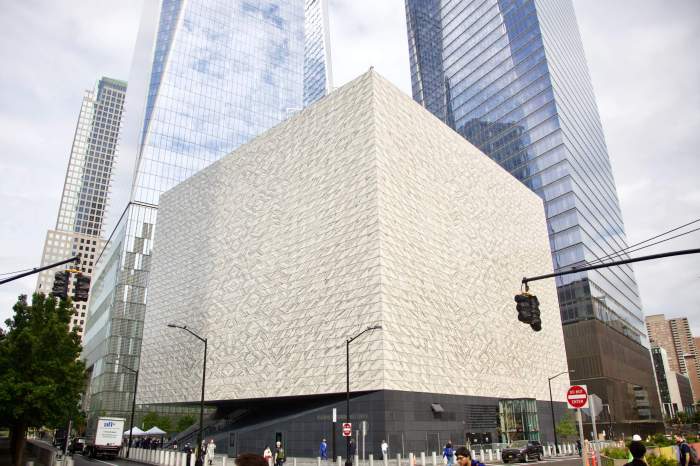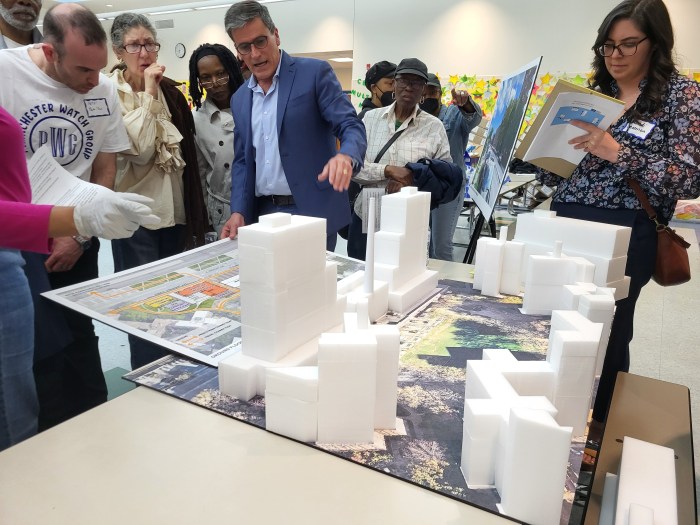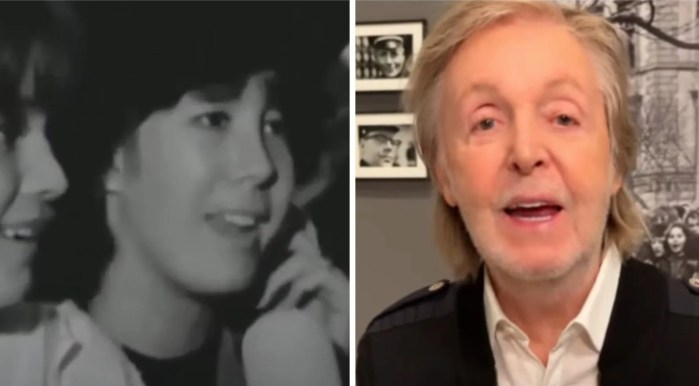BY Aline Reynolds
Groups in Lower Manhattan and throughout the city that provide services to immigrants might lose crucial linguistic and citizenship programs if the city’s annual budget is approved as is.
The proposed Immigrant Opportunity Initiative (I.O.I.) supplies $4.5 million to New York City community development programs that offer English for Speakers of Other Languages (E.S.O.L.) classes, legal services and other aid to recent immigrants on the road to gaining American citizenship. This sum, combined with $5 million in adult literacy funding, would amount to nearly $10 million in government subsidies for immigrant rights groups, according to City Councilmember Daniel Dromm, chair of the Council’s Immigration Committee.
The funds are intended to “help immigrant adults gain access to information and resources” and “strengthen their population in the democratic process,” according to a written description of I.O.I. provided by City Council.
In the city’s current and past annual budgets, I.O.I. has financed only about five percent of immigrant communities’ needs. “We appreciate that, however it’s a drop in the bucket when you’re talking about a $63 billion budget,” said Dromm, referring to the Mayor’s proposed budget for the 2012 fiscal year. “That’s what this funding is all about—making sure that our immigrant population gets its fair share of tax dollars.”
Now, the city is threatening to do away with these funds altogether.
Cabrini Immigrant Services, based on the Lower East Side, receives $128,000 a year to provide legal and social services to 800 people annually that emigrate to New York from the Caribbean, South America, South Asia and elsewhere.
“Without that kind of money, we’d disappear,” said the organization’s Family Program Coordinator, Javier Ramirez, who spoke at a City Hall press conference last week that honored N.Y. Immigration Coalition Advocacy Day and called for the inclusion of I.O.I. funding in the forthcoming budget.
Ramirez continued, “We’re trying to do our best to have people integrate into the community, participate and contribute, and we need the support from the city.”
The elimination of I.O.I. funds would be a “crisis” for the city as a whole, not just for its immigrant communities, according to Wayne Ho, executive director of the Coalition for Asian American Children and Families.
“The city needs to recognize [that] foundation money is down, endowments are shrinking and they’re giving out less grants,” said Ho. To compound matters, he noted, the city is receiving private dollars from foundations for youth and other services that might otherwise be directed toward immigrants.
The C.A.C.F. is an umbrella organization for nearly 50 citywide immigrant advocacy groups, including Asian Americans for Equality, which is based on Norfolk Street on the Lower East Side.
A.A.F.E. offers a range of services to some 1,000 foreigners including citizenship classes and English lessons. It receives approximately $23,000 from I.O.I. each year.
“We tend to have to really mobilize and talk to our elected officials and the Mayor’s office about the importance of the program,” said A.F.E.E.’s Executive Director, Chris Kui. “I wish it could be a permanent type of program where we don’t have to go through that process each year.”
“With all the state and federal funding cuts that’ll impact the city budget, we know this is going to be a difficult year,” said Jo-Ann Yoo, Kui’s special assistant. “Everybody is trying to be creative to maximize all our resources, [so that we can] serve as many people as we possibly can.”
Lower Manhattan has served as the primary destination in the history of migration to America, according to District One Councilmember Margaret Chin, a proponent of the extension of the I.O.I. funds.
“Immigrant communities are our future, and they deserve consideration and support equal to what millionaires get,” said Chin. “They are dedicated public workers and forces of revitalization, and have worked to make our city the success that it is today.”
Chin, who emigrated to the United States from Hong Kong when she was nine years old, worked at Asian Americans for Equality for 11 years. She helped to found the organization when she was in college, eventually becoming deputy executive director. She left her position at A.A.F.E. in August 2008 to focus on her campaign for City Council.
Two-thirds of all New Yorkers are immigrants or children of immigrants, according to the New York Immigration Coalition.
